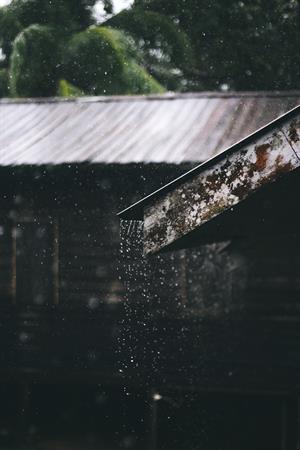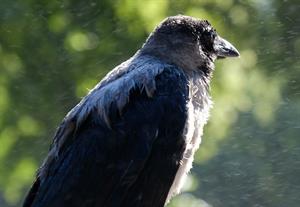
PUMPA - SMART LEARNING
எங்கள் ஆசிரியர்களுடன் 1-ஆன்-1 ஆலோசனை நேரத்தைப் பெறுங்கள். டாப்பர் ஆவதற்கு நாங்கள் பயிற்சி அளிப்போம்
Book Free DemoII
August 2
All night the rain has been drumming on the corrugated tin roof. There has been no storm, no thunder, just the steady swish of a tropical downpour. It helps me to lie awake; at the same time, it doesn’t keep me from sleeping.
It is a good sound to read by — the rain outside, the quiet within — and, although tin roofs are given to springing unaccountable leaks, there is a feeling of being untouched by, and yet in touch with, the rain.
August 3
The rain stops. The clouds begin to break up, the sun strikes the hill on my left. A woman is chopping up sticks. I hear the tinkle of cowbells. In the oak tree, a crow shakes the raindrops from his feathers and caws disconsolately. Water drips from a leaking drainpipe. And suddenly, clean and pure, the song of the whistling thrush emerges like a dark sweet secret from the depths of the ravine.
August 12
Endless rain, and a permanent mist. We haven’t seen the sun for eight or nine days. Everything damp and soggy. Nowhere to go. Pace the room, look out of the window at a few bobbing umbrellas. At least it isn’t cold rain. The hillsides are lush as late-monsoon flowers begin to appear — wild balsam, dahlias, begonias and ground orchids.
Explanation:
On August 2, the author wrote an entry in his diary describing the rain from the previous night. It wasn't a thunderstorm; instead, it was a steady rain that drummed on the tin roof. The music that the rain and the roof together created helped the author to remain awake when he had wanted to. On the other hand, it wasn't disturbing as the sound never prevented him from falling asleep.

Rain falling on the tin roof
He explains how the sound of rain created a pleasant atmosphere for reading. The sound of rain outside helped him find the quiet within himself. However, the author explains that tin roofs would cause the rainwater to leak through the corners of the inner wall of the room. Nevertheless, the author claims that he was not disturbed by the leaks as they gave him the feeling of being touched and yet remain untouched by the rain.
As the rain stopped on the 3rd of August, the clouds began to separate, giving way to the sun over the hills on the author’s left. A woman was seen chopping up sticks, and the tinkle of cowbells was also heard. A crow was seen sitting on the oak tree shook itself to remove the raindrops on its feathers as it cawed unhappily. The water dripped from the leaking drainpipe that carried off rainwater from the building.

A wet crow
Finally as everything settled, the pure song of the whistling thrush was heard like a “dark sweet secret” from the depths of the valley.
By August 12, the hills had been experiencing continuous rain and permanent mist. They had not seen the light of the sun for eight to nine days. Everything was wet and moist. One could not go anywhere. The only option was to walk around in one's room or look out of the window where a few people could be seen walking about under their umbrellas.
The author was pleased that it was not cold rain. The vegetation could be seen growing luxuriantly and abundantly on the hillsides as the last-monsoon flowers began to blossom. A few flowers that started to appear were wild balsam, dahlias, begonias and ground orchids.
Meanings of difficult words from the paragraphs:
No | Words | Meanings |
1 | drumming | the sound or feeling of continuous beating |
2 | corrugated | having parallel rows of folds that look like a series of waves when seen from the edge |
3 | downpour | a heavy rainfall |
4 | disconsolately | unhappily or sadness |
5 | thrush | a small or medium-sized songbird |
6 | ravine | a deep, narrow gorge with steep sides |
7 | soggy | very wet and soft |
8 | bobbing | make a quick, short movement up and down |
Reference:
National Council of Educational Research and Training (2006). Honeydew. A Short Monsoon Diary (pp. 109-117). Published at the Publication Division by the Secretary, National Council of Educational Research and Training, Sri Aurobindo Marg, New Delhi.